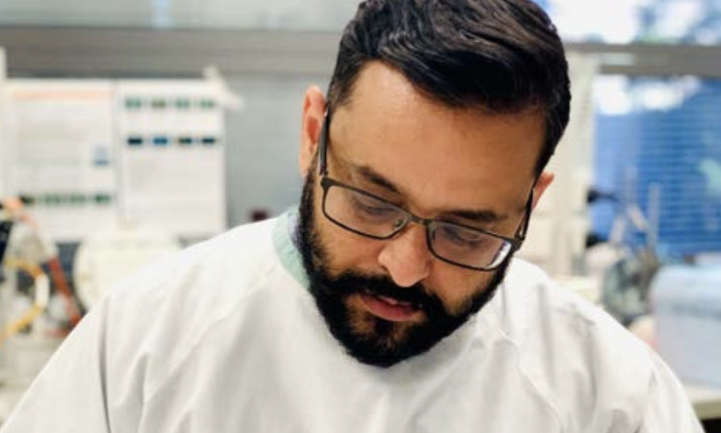Investigator: Dr Nitin Chitranshi
Co-Supervisors: Prof. Stuart Graham, Dr. Vivek Gupta
Title: Modulating neuroserpin using a gene therapy technique to reduce oxidative damage in glaucoma (Developing a gene therapy for glaucoma)
Aim: The aim of the study is to deliver serine protease inhibitor, neuroserpin protein, to prevent vision loss caused by plasmin proteolytic activity in the experimental animal glaucoma model.
Method: Viral vector mediated overexpression of neuroserpin was achieved by intravitreal injection in animal eyes exposed to microbead induced high intraocular pressure (IOP).
Key Results: Successful transgene (neuroserpin) was overexpressed in the mouse retinal ganglion cells (RGCs) and green florescence protein (GFP) was observed in the mouse fundus imaging. Overexpression of neuroserpin in the high IOP protected the RGC structure and reduced functional damage induced by glaucoma. Neuroserpin overexpression protects against retinal cell apoptosis associated with glaucomatous damage. Overexpressed neuroserpin was shown to elicit stronger plasmin inhibitory activity.
Conclusion: Our retinal gene delivery is the first identification of a serine protease inhibitor that can protect RGCs and can become a potential therapeutic target in both glaucoma and other neurodegenerative disorders.
Implications for Clinical Practice/Science and Future Research: Over 300,000 Australians live with glaucoma and almost 10% of the population over
80 years are affected. The total community cost is expected to increase to $4.3 billion p.a. by 2025. Current management is limited to lowering the IOP which we know is not enough. Therefore, it is extremely important to better understand mechanisms underlying RGC loss and structural damage in glaucoma and to develop therapeutic strategies which can directly protect against this. Now we are interested in preparing the nanoparticle-based delivery system of neuroserpin to the retina to protect RGC damage in glaucoma.
